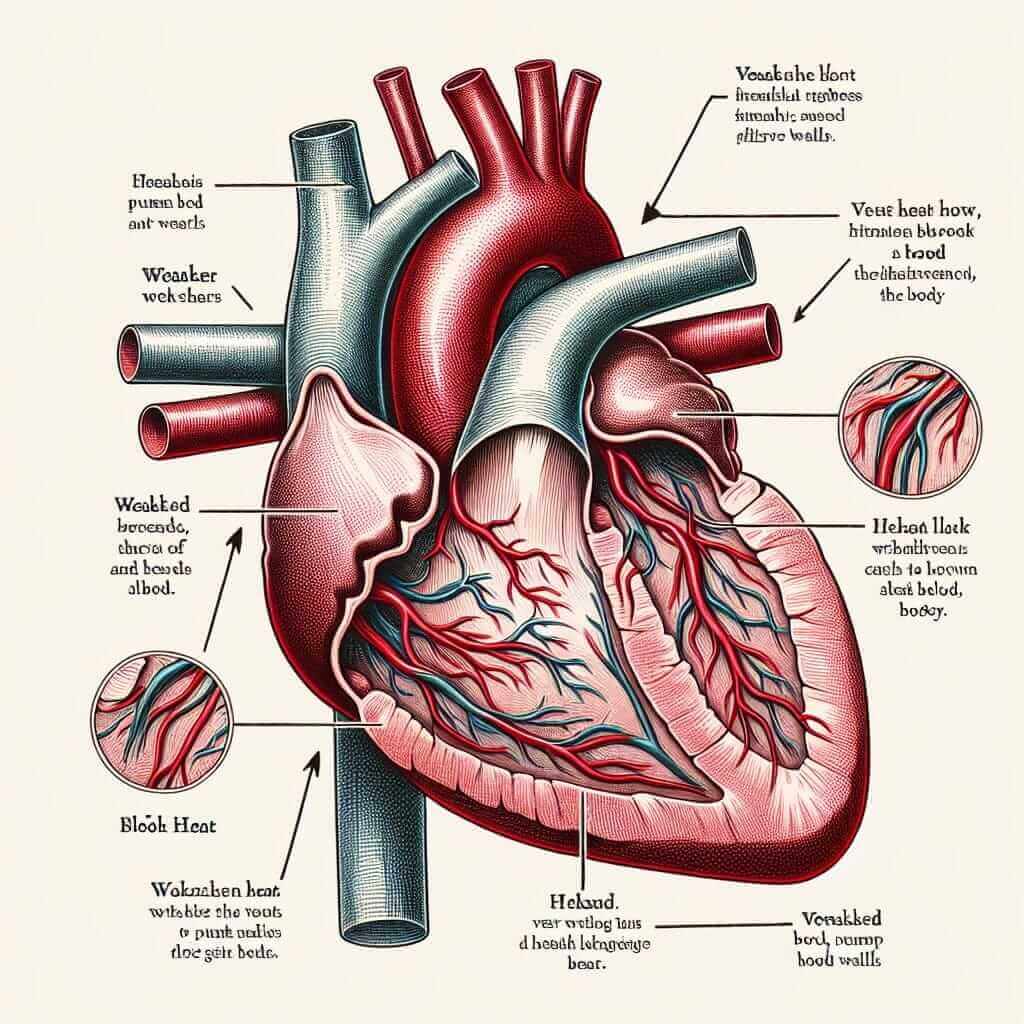The term “heart failure” is a common medical term that frequently appears in IELTS exams, particularly in the Listening and Reading sections. Understanding its meaning and usage, along with its synonyms and related vocabulary, is essential for achieving a high score.
Here are some synonyms for “heart failure”:
- Congestive heart failure (CHF): /kənˈdʒes.tɪv hɑːrt ˈfeɪl.jər/ (noun) – a chronic condition in which the heart doesn’t pump blood as well as it should.
- Cardiac failure: /ˈkɑːr.di.æk ˈfeɪl.jər/ (noun) – another term for heart failure.
- Heart insufficiency: /hɑːrt ˌɪn.səˈfɪʃ.ən.si/ (noun) – a less common synonym for heart failure.
Understanding “Heart Failure”
Definition and Explanation
“Heart failure” describes a condition where the heart cannot pump blood efficiently throughout the body. It does not mean the heart has stopped working entirely, but rather that it is weakened and struggling to perform its function.
Example:
“Heart failure is a serious condition that requires ongoing medical management.”

IELTS Exam Relevance
The term “heart failure” is highly relevant to the IELTS exam, especially in the following sections:
- Listening: You may encounter this term in lectures, dialogues about health, or doctor-patient consultations.
- Reading: Articles on health, biology, or medical advancements might discuss “heart failure”.
- Speaking: In the event you are asked about a health topic, understanding and being able to use “heart failure” accurately can be beneficial.
Using “Heart Failure” in IELTS Writing and Speaking
Writing Example (Task 2):
“The increasing prevalence of lifestyle-related diseases such as obesity and diabetes has led to a surge in cases of heart failure. Governments and healthcare providers must prioritize preventive measures and raise awareness about healthy living habits.”
Speaking Example (Part 3):
“I believe that early detection is crucial in managing heart failure. Regular health check-ups and a proactive approach to one’s well-being can make a significant difference.”
Collocations and Related Vocabulary
To demonstrate a wider range of vocabulary, consider these related terms:
- Cardiomyopathy /ˌkɑːr.di.oʊ.maɪˈɑː.pə.θi/ (noun): A disease of the heart muscle.
- Arrhythmia /əˈrɪð.mi.ə/ (noun): A problem with the rate or rhythm of the heartbeat.
- Edema /ɪˈdiː.mə/ (noun): Swelling caused by excess fluid trapped in the body’s tissues.
- Shortness of breath (dyspnea) /ˌʃɔːrt.nəs əv breθ/ /dɪspˈniː.ə/ : Difficulty breathing, a common symptom of heart failure.
- Fatigue /fəˈtiːɡ/ (noun): Extreme tiredness, a common symptom of heart failure.
Example Sentences:
- “Cardiomyopathy is a major risk factor for developing heart failure.”
- “Patients with heart failure often experience arrhythmia and edema.”
- “The doctor explained that the patient’s fatigue and shortness of breath were indicative of heart failure.”
Idioms and Phrases
While there aren’t specific idioms related to “heart failure,” you can use figurative language:
- “His heart sank”: This idiom describes a feeling of disappointment or despair, not literal heart failure. However, understanding the metaphorical use of “heart” can be beneficial for the IELTS.
Conclusion
Mastering medical vocabulary is essential for success in the IELTS exam. By understanding the meaning, usage, and related terms of “heart failure,” you will be better equipped to tackle various question types. Continue practicing and expanding your vocabulary to improve your overall language proficiency.